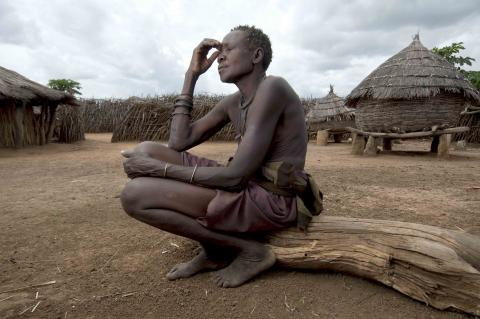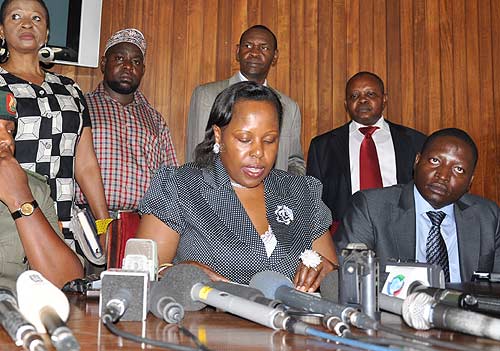It has been an incredibly busy few weeks. I have traded Kampala’s grey (it’s been a record 6 months of rain in the city of hills) for Palo Alto’s late autumn-y chills. My apologies to regular readers of this blog and especially to those who reached out to ask what is happening? Aside from the rainy season, Uganda, which turns 50 next year as been in a season of scandal. In fact the cabinet minister charged with “overseeing” the celebrations (they do have a fat budget), the Minister for the Presidency (formerly information minister) Princess Kabakumba Matsiko was the latest victim of allegations of asset stripping. As David Pulkol, a former spy chief said in a meeting at which this writer addressed Members of Parliament on the challenges of the next 5 years- “the country has not gone to the dogs but the dogs have come to the country”. Predatory corruption has simply not become fashionable overnight however. As this blog returns to business as usual or unusual considering, we can delve into the context of corruption. My own take is that it’s a form of dissent, a rejection of something or even protest. Pervasive and systemic corruption cannot and should not be trapped by newspaper headlines that maroon it in government offices and boardrooms. It is alive and draws its breath from a sense of the times, that intangible feeling that most Ugandans have these days, from the crowded slums to the playhouses of the rich and famous- that the country is a ship without ballast.
It is possible that the unbridled asset stripping one is witnessing is perhaps the biggest vote of no confidence by the well to do in the future. If so it may make sense that they are making an unofficial withdrawal from our collective pensions while the rest of the country is withdrawing any confidence from the institutions that they lead.
More of this later.
I would like to return to the issue of the future by referencing both the past and the present. One of the oft traded phrases in the field of natural resources is whether or not it will be a “blessing or a curse”. Optimists (including myself) suggest the future can hold but only promise. In fact a cold rendering of the present state of affairs with reports of graft staining the whole country like banana wilt make the case that any infusion of cash can only escalate the present trends. For areas like Bunyoro and for civil society groups particularly trying to locate the fault lines of an impending “crisis” from natural resources.
Indeed just as I argue that one need not look at the bottom of the coffee cup to size-up the extent of wastage from say Uganda’s oil sector in the coming years (just look at the state of institutions in Uganda and how they have handled other resources like aid money), one should also not get lost in the woods over its potential negative side-effects like damage to the environment and the risk to the rights of those who reside in areas with natural resources. A recent Mining Sector report on Karamoja region (one of several in that direction I predict) for example shows what a first draft of Uganda’s upcoming history of natural resource exploitation will look like.
Titled “opportunities and constraints” the tame report looks at the vast artisanal mining sector in Karamoja (one of the most endowed regions, recently a minister from the region offered to sale me 1kilo of gold) and the effects of maladministration on it. Some 18,000 “miners” in a largely informal sector are learning to make a living from the sector. Its actual revenues are not recorded and a pitiful amount is paid in royalties. In the report its estimated for example that while the values of minerals traded in the informal sector amount ed to over 25 billion shillings – Moroto District received royalties of less than 100 million in 2010.
Indeed Karamoja is a staging ground for a contest over royalties and what is due to the community that could occur hundreds of miles away in the west of the country where oil is stirring the same concerns. The issue is bigger than a single blog post but suffice to say that in Karamoja, which is a region, long associated with insecurity from armed pastoralism- a response of the state of Uganda has already been tested. When looked at not only as a security problem but also as a competition for resources it offers a different interpretation. There is the competition within the akarimojong communities for cattle, pasture and influence that pre-dates the Ugandan state. There is also competition now for land and territory for mining, agriculture and other concessions. In the intervening period Karimajong have been herded into encampments as the civilizing force of the state has been brought to bear hard on them. Kampala where many Karimajong women eke a living as beggars and prostitutes is a sign of how far this disintegration of their society has gone. Displacement, death, environmental degradation are just a few of the side effects. Karamoja is a litmus test of whether Uganda succeeds or follows the path of other African nations exploiting resources. When considering reports of economic progress and development its best to also find the human rights situational reports as a companion.
That is the sad part. On the flipside, formalization of mining and conscious application of the rules here will be the hope that other communities need to assure them that a different fate awaits them when the winds of exploitation wake the Albert to a new history. Karamoja has arguably been a historically difficult problem and the policy response here has been the best Ugandan institutions can manage. It has not been without successes but institutional fragility will not assure those voices skeptical about the future just yet.










